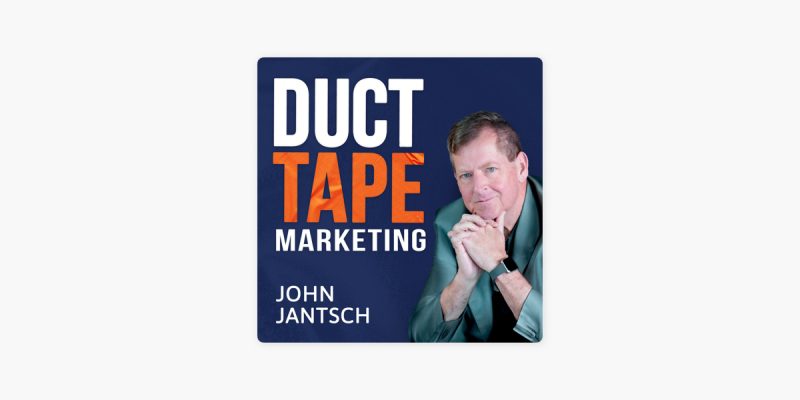Business
The Best Online Payroll Services [Updated for 2025]
Published
4 months agoon

A quality payroll service is one of the most invaluable tools any entrepreneur can have. Whether you’re a small business owner or an HR manager, paying your employees on time is crucial. This makes choosing a service even more weighty, after all, it is a heavy administrative burden. The good thing is, you can outsource this duty to an online payroll processor.
According to statistics, 49% of workers begin a new job search after just two paycheck errors, and with 65% of workers living paycheck to paycheck, it’s more important than ever to ensure an efficient, effective payroll process.
These services can save you precious time and mitigate potential issues. To make it easy for you to choose, we listed the best online payroll services for 2025.
Top 5 Online Payroll Services
Gusto
Gusto is a great option for both new and experienced payroll administrators, boasting an incredibly clean user interface and a first-rate payroll setup. Gusto lets you manage your employee’s time off (vacation and sick pay), company health insurance, and worker’s comp. Gusto offers excellent mobile access, too. This allows employees to manage aspects of their Gusto profiles, view payday insights, and access Gusto Wallet financial tools.
Gusto offers four tiers of membership, the most affordable of which is the Contractor’s Only plan, which offers unlimited U.S.-based and global contractor payments, supporting more than 100 countries, plus 1099 creation and filing at a rate of $6 per person per month with no base price.
The other three are Simple, Plus, and Premium. Here’s a deeper look into each plan:
Simple
Price:
$40/mo + $6/mo per person
Plan details:
- Full-service single-state payroll including W-2s and 1099s
- Employee profiles and self-service
- Basic hiring and onboarding tools
- Gusto-brokered health insurance administration
- Employee financial benefits
- Payroll and time-off reports
- Custom admin permissions
- Integrations for accounting, time tracking, expense management, and more
Plus
Price:
$80/mo + $12/mo per person
Plan details:
(All Simple plan features +)
- Full-service multi-state payroll including W-2s and 1099s
- Next-day direct deposit
- Advanced hiring and onboarding tools
- PTO management and policies
- Time tracking and project tracking
- Workforce costing and custom reports
- Team management tools
- Full support
Premium
Price:
Bespoke pricing, reach out for a personalized quote
Plan details:
(All Plus plan features +)
- HR Resource Center
- Compliance alerts
- Access to certified HR experts
- Full-service payroll migration and account setup
- Health insurance broker integration
- R&D tax credit discount
- Waived fees and exclusive pricing
- Performance reviews
- Employee surveys and insights
- Dedicated support
QuickBooks Online Payroll
Founded in 1983, Intuit is a California-based financial software company. Since its inception, Intuit has developed into one of the best-known providers of accounting software. Their online payroll service, QuickBooks, includes the essential features you need to run payroll.
QuickBooks offers three tiers of membership. The least expensive membership covers basic accounting features, such as invoices. For more features, check out the Essentials and Plus memberships. Each plan’s features are as follows:
QuickBooks Simple Start (2025)
- Price: $38/month for 1 user
- Best for: Freelancers and small teams with basic payroll needs
Features:
- Automated bookkeeping
- 5 free ACH bank transfers/mo for bills
QuickBooks Essentials (2025)
- Price: $75/month for 3 users
- Best for: Small businesses needing deeper financial tracking
Features:
- Includes all Simple Start features, plus:
- Recurring invoices
QuickBooks Plus (2025)
- Price: $115/month for 5 users
- Best for: Growing businesses with HR and compliance needs
Features:
- Includes all Essentials features, plus:
- AI-powered profit & loss insights
- Anomaly detection and resolution
- Budgeting
QuickBooks Advanced (2025)
- Price: $275/month for 25 users
- Best for: Established businesses with HR and compliance needs
Features:
- Includes all Plus features, plus:
- Custom user management and permissions
- Custom report builder
- Data sync with Excel
- Revenue recognition
- Forecasting
OnPay

OnPay is a cloud-based full-service payroll processing system capable of running payroll according to a preset schedule, automatically disbursing wages, and calculating and withholding taxes.
OnPay can sync up with several other software your team is already using, making it easy to integrate the service into your team’s system. Another benefit of OnPays model is the simple, transparent pricing structure. No tiers; just one base rate.
Pricing:
$49/mo + $6/mo per employee
SurePayroll

SurePayroll’s award-winning service supports W-2 employees and 1099 contractors. Additionally, it handles 401(k) deductions and manages flexible spending accounts (FSA) and health savings accounts (HSA).
SurePayroll also offers a mobile app— available on both Apple and Android devices.
SurePayroll offers live support through its United States-based support team through chat, email, or phone.
Small Business Payroll
- Price: No Tax Filing: $20/month + $4 per employee, Full Service: $29/month + $7 per employee
- Best for: Small businesses and startups
Features:
- We file and deposit your federal and state taxes!
- Run payroll in 3 simple steps
- Schedule payroll to run automatically
- Unlimited payroll runs and free 2-day direct deposit
- Reports and pay stubs are available online 24/7
- Supports W-2 employees and 1099 contractors
Nanny & Household Payroll
- Price: Full-Service Household, $39/month, includes 1 employee, $10 per additional employee
Best for: Homeowners
Features:
- Signature-ready Schedule H
- We file & deposit your federal and state taxes!
- Run payroll in 3 simple steps
- Schedule payroll to run automatically
- Unlimited payroll runs and free 2-day direct deposit
- Reports & paystubs available online 24/7
- Supports W-2 employees & 1099 contractors
Be sure to choose a payroll service that works for your business, and provides you with the peace of mind that comes with a reliable bookkeeping system. Your employees will thank you.
You may like
Business
What’s the Best Design Pickle Alternative?
Published
12 hours agoon
October 17, 2025By
FloreTLDR: Penji beats Design Pickle with faster delivery, unlimited revisions, and a more intuitive platform that business owners actually enjoy using.
Penji is the best Design Pickle alternative for business owners who need consistent, high-quality designs without the wait. Businesses get unlimited requests, 24-48 hour turnarounds, and a dedicated design team for one flat monthly rate. The platform is easier to use and gives owners more control over projects than Design Pickle.
Tired of waiting days for Design Pickle to finish a simple social media post? Business owners pay good money for design as a service, so why should they settle for slow turnarounds and limited creative input? The right Design Pickle alternative can transform how companies handle visual content without breaking the bank.
1. Penji – The Smart Choice for Busy Owners

Penji gives businesses everything Design Pickle promises, but actually delivers on it. Designs come back in 24-48 hours (not 2-3 days), and clients get unlimited revisions until they’re happy with the result. The dashboard is dead simple to use—just upload a request, add some notes, and designers get to work.
What really sets Penji apart? Clients aren’t stuck with random designers each time. The team learns brand preferences, remembers style choices, and gets better with every project. Plus, if businesses need to pause during slow months, they can do that without losing their spot. See how Penji compares to other services.
2. Designjoy – Premium But Pricey

Designjoy offers high-end design work, but at nearly double the cost of most services. They’re great if budget isn’t a concern and companies only need one designer working on projects. The wait time can be longer since clients work with a single designer who might be juggling multiple accounts.
3. Superside – Better for Agencies

Superside is built more for agencies and large teams than individual business owners. They do solid work, but the onboarding process is complex and companies need to commit to higher-tier plans to get reasonable turnaround times.
Conclusion
After comparing all the major graphic design services, Penji remains the best Design Pickle alternative for business owners who want quality, speed, and value. Companies get professional designs without the enterprise pricing or frustrating delays.
Stop waiting around for designs. Try Penji today and see why thousands of business owners made the switch.
Frequently Asked Questions
Is Penji really faster than Design Pickle? A:
Yes. Most Penji designs are completed within 24-48 hours, while Design Pickle typically takes 1-2 business days or longer.
What if businesses don’t like the design?
Clients get unlimited revisions with Penji. Just leave feedback and designers will make the changes until everyone’s completely satisfied.
Do businesses need to sign a long-term contract?
Nope. Penji works month-to-month, and companies can pause or cancel anytime. Learn more about flexible plans.
Business
Top Marketing Podcasts for 2025 You Should Be Following Today
Published
14 hours agoon
October 17, 2025By
Skylar Lee
Being a marketer means constantly being on the lookout for the latest in marketing trends and news. You’ll be surprised how fast trends come and go, along with the tools that you commonly use for your campaigns. If you’re looking for a trend that never goes out of style, it’s podcasting. Here are the top marketing podcasts to tune in to in 2025:
1. Marketing School

Marketing School is hosted by one of the famous names in the marketing industry: Neil Patel. Eric Siu is also another popular figure hosting the show. They update listeners on the newest marketing and SEO trends and information. Plus, they interview content creators and marketers to share their marketing secrets and tips to achieve their goals. It’s a great starter podcast for new marketers in the field. Listen to the famous hosts every day!
2. Social Media Marketing Podcast

The Social Media Marketing Podcast should be your go-to podcast if you’re focused on social media marketing. Listen to Michael Stelzner weekly to get the best tips on marketing on social media with the latest tech and trends. If you’re also running out of content ideas, the podcast host also provides tips and insights to help you get started on new strategies. Plus, he interviews marketers and business leaders on how they achieved success with social media marketing.
3. The WARC Podcast

The WARC Podcast delivers marketing insights to help you know the latest in marketing for the week. You’ll learn what marketing challenges marketers overcame. Listen to them twice a week for recent trends, interviews, and event recaps.
4. Duct Tape Marketing

Another big name in the marketing sphere is Duct Tape Marketing, which made an impact in 2005. Listen to John Janstch three times a week to listen to interviews with small business owners and marketers, and how they grew their businesses through marketing strategies. Don’t miss out on the trends and tips to supercharge your marketing.
5. Perpetual Traffic

If you want tips from expert marketers Ralph Burns and Kasim Aslam, listen to Perpetual Traffic! They specialize in paid traffic tips to help you increase sales and leads! Expect interviews from various experts in different niches. You can also get insights from case studies to help you grow your business. Listen to them twice a week!
6. The Digital Marketing Podcast

Do you want to be updated on everything digital marketing? The Digital Marketing Podcast is the best podcast to listen to. Know the latest news, updates, stats, and future of marketing. The hosts also discuss current tech trends in marketing to grow your business. Listen to the hosts twice a week!
7. The Affiliate Guy

Are you an affiliate marketer and need expert advice and the latest updates on affiliate marketing? You should listen to The Affiliate Guy. Hosted by Matt McWilliams, he has trained over 320,000 affiliates.
Think of The Affiliate Guy’s podcasts as engaging audio versions of How-To blogs. Additionally, he interviews entrepreneurs and leaders. Plus, he also references case studies to help you understand how they achieved their goals.
8. Marketing Trends

The very apt Marketing Trends podcast updates you weekly with new information and insights about marketing! You can listen to CEOs, CMOs, and other thought leaders share best practices and strategies to grow the biggest brands! Know how you can grow as a leader or an ambitious marketer when you get the latest tips for achieving success.
9. Stand The F*ck Out™

Are you tired of hearing or reading the same marketing tip or trend and don’t want to use that strategy anymore? Stand The F*ck Out™ gets straight to the point and doesn’t dilly dally when discussing marketing. Louis Grenier hosts the show and provides evergreen topics. You also get to hear from experienced marketers how their teams executed strategies and got the desired results. Listen to this podcast weekly.
10. Social Pros Podcast

Are you interested in learning how social media marketers execute their campaigns for big brands? The Social Pros Podcast should be on your radar. Jay and Adam host the show, which you can listen to weekly. Not only do they discuss recent trends and strategies, but they also discuss team management and other personal conversations on being a marketer.
11. Marketing Over Coffee

Do you prefer listening to podcasts in the morning during breakfast? Why not listen to Marketing Over Coffee on the side while enjoying a hearty morning meal? Like other podcasts, you’ll hear the latest tech trends like AI and improved marketing tools. Plus, get insights from the experts like Seth Godin, Rand Fishkin, and Ann Handley! Episodes come out weekly!
Business
What are the Best Social Media Post Design Services for Startups?
Published
2 days agoon
October 15, 2025
While startups have limited resources, it doesn’t mean they can’t enjoy high-quality graphics for their social media channels. Here are the best social media post design services that are affordable, fast, and efficient:
Penji

An on-demand graphic design service, Penji tops this list, thanks to its high-quality work, fast delivery times, and flexible pricing plans. It has a team of professional designers that can craft the most amazing social media graphics, logo designs, custom illustrations, and more for as low as $499 per month.
Kimp

A subscription-based design-as-a-service, Kimp offers unlimited graphic designs and videos for as low as $448 (for a limited time only). You can send as many design requests as you can in a month, revisions included. Its turnaround time is 1 to 2 business days, ideal for startups that need to post content regularly.
ManyPixels

With all-inclusive plans starting at $599 per month, ManyPixels is an excellent option for startups seeking a reliable design solution. A subscription plan includes unlimited design requests, revisions, brands, free stock assets, native source files, and many other graphic design services.
Fiverr

One of the more popular platforms for social media post design services is Fiverr, a freelancer marketplace. Its global platform lets you choose a freelance graphic designer from around the world. You can find one based on their location, rates, expertise, and many other factors. Social media post designs usually start as low as $5 to $20.
Canva Pro

A cloud-based design platform, Canva Pro, has tools to let you create professional-quality social media posts for less. It has thousands of customizable templates, brand kits, and drag-and-drop features to help you boost your social media marketing. It offers a free trial, but if you want to enjoy more of its features, a $15 per month subscription fee is all you need.
What’s the Best Design Pickle Alternative?

Top Marketing Podcasts for 2025 You Should Be Following Today

What are the Best Social Media Post Design Services for Startups?

What’s the Best Package Design Service Agency?

What’s the Best Print Media Design Service Agency?
Don’t Sign Up for a Design Service Before You Read This

What’s the Best Website Design Company in 2025?
Don’t Sign Up for a Design Service Before You Read This

Top Marketing Podcasts for 2025 You Should Be Following Today

What’s the Best Website Design Company in 2025?

What’s the Best Logo Design Agency in 2025?

What’s the Best Illustration Design Service Agency to Hire Today?

What’s the Best Print Media Design Service Agency?




